Much has been said about the defection of Malam Nuhu Ribadu from the All Progressives Congress (APC) to the Peoples Democratic Party (PDP). Most of the comments I have read or heard are very critical of his decision. He has been described as a typical Nigerian politician without values. Someone said his defection is an indication of his desperation to get power in any form or shape and by any means ─ even if it means romancing with the devil that they say the PDP represents. Many of his fans are bitter and angry and disgusted and embarrassed by his political relocation.
I’ve been reflecting on the episode, if it can be so called, and my thoughts have wandered and meandered and finally settled on the old debate about philosophers and kings. If you desire to change society, do you want to do so as philosopher or as king? Ribadu, who made his name as a no-nonsense anti-graft czar under ex-President Olusegun Obasanjo, was in some sense a philosopher who had some political power. He had a passion to change society. He spoke out against the cancer called corruption. He did his EFCC job courageously, albeit with the occasional slip.
Then one day in 2010, he decided he wanted to be a full-blooded politician. He wanted to be President of Nigeria. Having chosen to cross the divide between being a philosopher and being a politician, he had decisions to make. He needed a political structure. For a man who had been a police officer all his life, he understandably had no platform. He needed other people’s platforms. Whose platform would he use? The platform of the same politicians he had castigated and indicted? It was always going to be a difficult decision, but Ribadu chose the Action Congress of Nigeria (ACN) nonetheless.
His political foray has been riddled with contradictions. He has been eating on the same table and dancing to the same tune with the politicians he had so passionately savaged when he was EFCC chairman. Huge sums of money were being spent on his campaign by these same politicians to print his posters, produce radio jingles and TV commercials and organise rallies and logistics for him. As a philosopher, Ribadu would question the source of the funding. As a politician, he had to look the other way. Something had to give. Contradictions.
Advertisement
I recall voting for Obasanjo in 1999. Among other reasons, I was enthralled by his perceived honesty and uprightness. The clincher for me then was his response to the question about the shady characters financing his campaign. He said: “In politics, you need saints and sinners to win. But when you win, you separate the saints from the sinners.” I loved it. I voted for him. Although it later turned out that Obasanjo ditched the saints and went to bed with the sinners, that philosophy remains fascinating to me. You need saints and sinners to win ─ then decide what to do afterwards.
Maybe that was what Ribadu had in mind when he decided to camp with ACN. But it never worked out. His presidential bid was brought in dead. However, he had put his hand on the plough, and there was no looking back. He had become a full-fledged politician. The next question: would ACN (which later became part of APC) be his best route to power? Having decided to remain in politics, there were always more contradictions awaiting him. Every human being must at some point battle one contraction or the other ─ that is the way the world is wired.
Ribadu could choose to remain in APC to make a statement that he is a “principled politician”, but he could end up with a dead-rubber political career. Or he could look outside the window and see that the grass appears greener on the other side. If he decided to take a leap into the seemingly lush PDP field, he could land well and be on his feet ─ but he could also land badly and fracture his backbone. We call it crossroads. There is no decision he took that was not going to have its own implications. It’s a dilemma, a test.
Advertisement
Chief Gani Fawehinmi, a genuine philosopher, faced his own test in 2003. Having decided to become king, he needed a platform. Even though he was well loved by Nigerians, he had no political structure. He could team up with the politicians he had always criticised or set up his own structure. He wanted to make a statement. He set up his own party. It did not fly. I asked Fawehinmi his regrets about the scandalous 2003 presidential election in which he was a candidate. He told me candidly: “I was shocked by the attitude of Nigerians… It’s like somebody throws excreta at them and instead of revolting, they used it as pancake on their faces.”
Comrade Adams Oshiomhole faced his own dilemma in 2007. He wanted to transform from philosopher to king. A fierce labour activist and friend of the Nigerian masses, Oshiomhole was naturally expected to run on the platform of the Labour Party, which was practically his baby. But he was a fresh politician who had no political structure on the ground. If he was only interested in making a statement, he would have run on the platform of the Labour Party. But he was apparently not in politics to make a statement: he wanted to be elected governor. He decided to join ACN, to the disappointment of some of his fans. He survived his own contradictions and became governor, and one of the best Nigeria has produced.
The trouble with Ribadu is the same with philosophers who want to be kings: how do they manage the expectations and the contradictions? Perhaps, like Oshiomhole, Ribadu is not in politics to make a statement. He wants to win. And having taken a hard look at APC, he maybe saw that his chances had rapidly diminished. The entry of Major-Gen Muhammadu Buhari, in my opinion, effectively marked the end of Ribadu’s presidential adventure. Buhari has more following, has a bigger anti-graft reputation, and having been minister, governor and former military head of state, his CV is unquestionably more seductive than Ribadu’s. Age is said to not be on Buhari’s side, but I recall that the Great Zik and Awo contested in 1983 in their 70s.
Ribadu’s critics said he chose the wrong option ─ that he should not have gone to PDP, which is seen as a den of thieves and nest of killers. I honestly don’t know the difference between Ribadu being in APC or PDP. Both parties are full of Nigerian politicians. Unfortunately, once philosophers decide to become politicians, they will at some point discover that idealism and pragmatism are not birds of a feather. A humorist once said this about relationships: “Love is ideal, marriage is real. Any confusion of the two shall never go unpunished.” That is the trouble. If the PDP adventure turns out well for Ribadu, he could be an Oshiomhole. If not, the ridicule will be unbearable.
Advertisement
AND FOUR OTHER THINGS…
SAVE OUR SOCCER
Is President Goodluck Jonathan aware of the damage being done to our football by his new sports minister, Mr. Tammy Danagogo? In a country where so many things divide us, football is about the only genuine unifying factor that no creature should be allowed to toy with. After so many years of relative peace in the Nigeria Football Federation (NFF), Danagogo has gone gaga in trying to install his own man at the football house. The drama since he became minister is shameless and shameful. Jonathan must call this misguided and clueless minister to order ─ and very quickly. Enough.
TACTICAL MANOEUVRE
Advertisement
Some 480 Nigerian soldiers were involved in a battle last week and ended up in Cameroon. The word in town is that they were running away from Boko Haram, but the military authorities said it was a “tactical manoeuvre” in which they did not know when they had crossed the border. Chief of Army Staff, Lt. Gen. Kenneth Minimah, also did his own “tactical manoeuvre” last week when he publicly announced that we were expecting arms from one country after which we would launch a “massive military” operation against Boko Haram, in whose camp are over 200 kidnapped schoolgirls. Hilarious.
EBOLA ANONYMOUS
Advertisement
What exactly does the government mean by “quarantine”? I need to be educated. A quarantine, from my little understanding of how it works, is basically keeping people at a guarded location for medical observation. What the government has been passing off as quarantine, however, is to tell suspected contacts with Ebola victims to stay at home. That was why that nurse was able to go to Enugu without detection. That was why the ECOWAS official could take Ebola to Port Harcourt without detection. The time has come to publish the names of those who breach the “quarantine” to protect other Nigerians. Simple.
AFTER EBOLA
Advertisement
Minister of health, Professor Onyebuchi Chukwu, announced with delight on Tuesday that Nigeria now had only one confirmed case of Ebola, although things took a turn with the discovery of more cases in Port Harcourt the following day. Things could be worse. We should never make the mistake that Ebola can only come to Nigeria through a Liberian. We are only speaking about the cases we know. It can still come through some other means. We should use this crisis to begin an overhaul of our healthcare system, as well as embark on aggressive promotion of personal hygiene. Vigilance.
Advertisement
2 comments

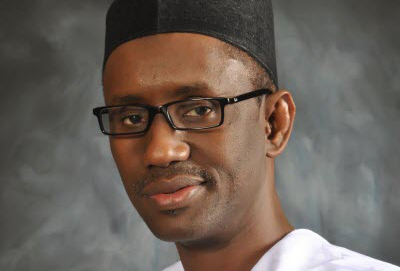
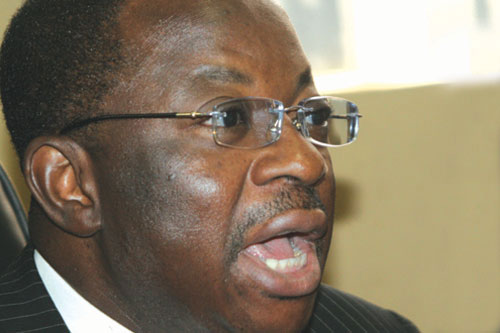


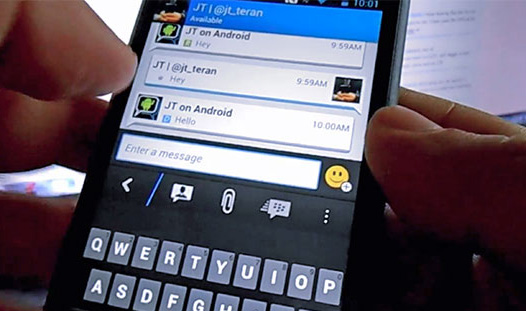
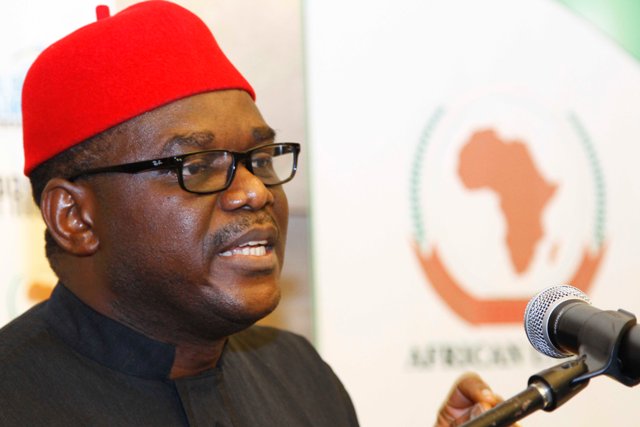
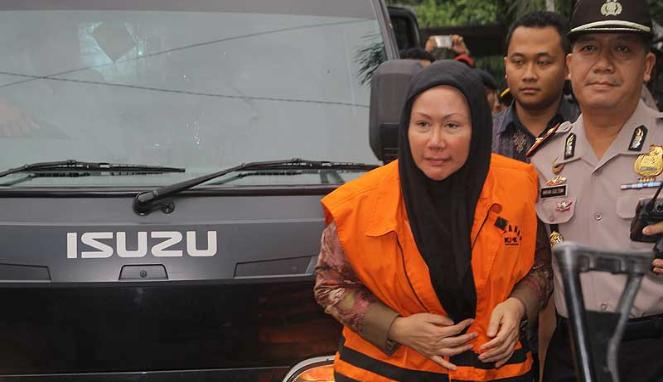
Wicked Simon! OBJ must read the portion that concerns him in this piece. For Ribadu, let his instinct guide him. From the characters in the Adamawa guber race, l think Ribadu is still a candidate with possible crendentials. Adamawa, like my state, Osun, has never been fortunate in terms of leadership with needed drives, which l am already sensing in Nuhu. I am not his fan, please.
You made me burst out laughing so early in the morning! Very true, all of it, I pray we start to work collectively as Nigerians to make our suggestions from our observations, PRACTICAL.